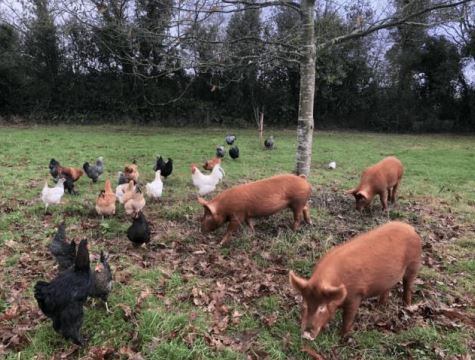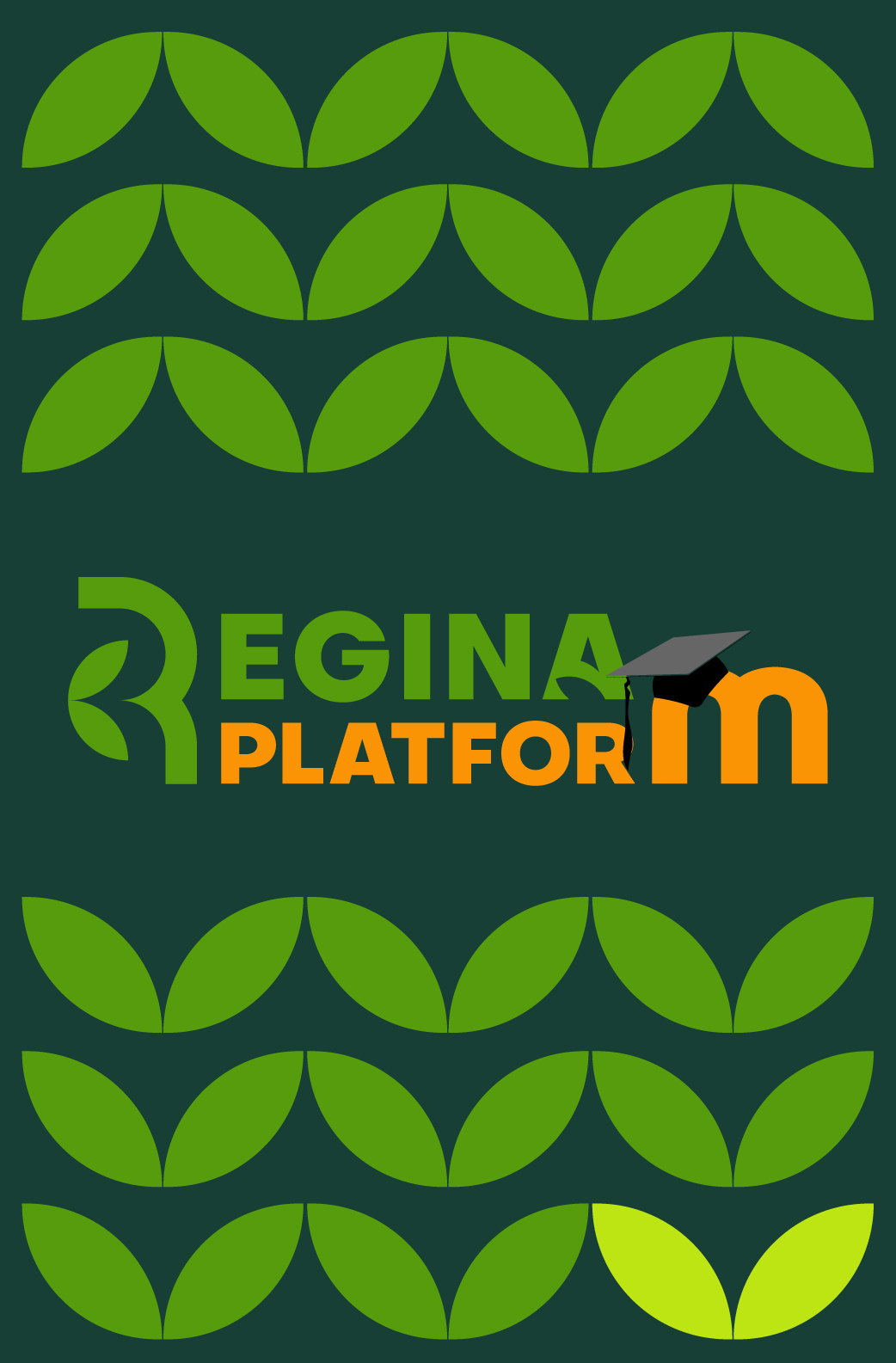John Mchugh
Success Story
John McHugh is a nature-friendly, registered organic farmer from Co. Laois, who inherited a 95-hectare farm from his parents in 2001. He has a modest herd of 60 dairy cows, along with a small beef herd, hens and pigs, whom he frequently integrates together as seen in the image below.
The Beginning of John’s Regenerative Journey
In 2014, John needed a change. He wanted to be free from debt and for his farming to become more resilient; both economically and environmentally. He no longer wanted to “blindly follow advice”, and he was motivated to discover less intensive farming methods. So, he began the gradual process of reducing his herd size and has gone from a herd of 160 in 2014 to 60 in 2023.
John believes that there is not much space for nature in the conventional system due to the stringent rules and high costs. So, regenerative agriculture was an exciting opportunity for John to make a real change, on his own terms. John believes that dairy farmers can be too heavily focused on trying to have as many cows as possible, while maximizing output. He explained how this can be a vicious cycle of higher costs and inputs, as he came to realise from his many years of conventional farming.
100% Forage Based Feed
Now, after farming more regeneratively for almost 9 years, John’s land has grown incredibly resilient. For example, John has not been feeding any grain feed to his cows and other cattle on the farm since 2020, all animals are 100% forage fed (predominantly grass). His pastureland is plentiful, and he makes his own silage and hay for indoor feeding. John explained how his animals’ forage-based diet allows for the end products (meat and milk) to be richer in omega 3 fatty acids. Creating his own feed allows for a healthier, more cost-friendly, and generally more sustainable product as it is all produced on-farm through organic growing methods.
Keeping the Cattle Out Year-Round
Unlike most other Irish dairy farms who bring their cattle in for the winter, John can keep his cattle out year-round as his herd is small and his pasture is abundant and resilient to the Winter weather conditions. He puts this resilience down to his regenerative farming methods; with stronger soils and healthier plant growth. Of course, he mentions, if the weather becomes harsh then he will bring the cattle indoors, and indeed, his winter milking cows are kept indoors for ease.
Becoming Friends with Shrubs and Trees
John is engaging in the process of semi-rewilding areas of his land through engaging with Agroforestry and growing Scrubland. He keeps the cattle out of these areas until the land has matured enough for them to forage, as seen in the image below. Allowing his dairy cows to feed outside of grassland pasture is unique in the Irish dairy farming landscape.
John believes Regenerative Agriculture is “highly contextual”, and that farmers must find the practices that work for them, and their land. John holistically grazes his cattle on mature, diverse grassland. Paddocks are not over-grazed, and are given time to rest and regrow after grazing.
Welcoming in the Community
John has allocated a section of his farm for the community to keep small allotments and grow their own produce. This community farm is planted with a mixture of native trees and vegetables in the hopes of forming a Forest Garden with plentiful fruit and nut trees. For John, the community farm is not about profit, it’s about social exchange and people working together.
Biodiverse Pastureland
John has multispecies swards of a variety of native grasses and herbs that lead to his fields looking like colourful meadows in the Spring and Summer. He allows his grass to go to seed, which has exploded the biodiversity and greatly increased the number of pollinators.
Saying No to Chemical fertilizers
John believes that you can’t claim to be regenerative if you are using nitrogen or phosphorus fertilisers, as they undermine the carbon and natural diversity of our swards. Indeed, these fertilisers have been known to reduce soil biodiversity whilst leading to high levels of run-off and subsequent water pollution in Ireland. John noticed how when other farmers were struggling with drought and wet weather conditions nearby, his grass was continuously growing strong, and he believes this is due to improved water retention in his soil that has been enabled through his years of regenerative practices.
Quality Produce, Improved Animal & Financial Health & Continuous Improvement
John sells his dairy to a local organic yoghurt producer called Glenisk. While organic premiums were hit hard this year, he hopes to receive a higher price for his goods in the coming years. Through regenerative farming, John has found financial resilience, a reduced workload, huge improvement in his animals’ health, and more time to spend with his young family. John says that regenerative agriculture is a constant process, with continual tweaking and reassessments of practices necessary.
LABELS: Ireland, Livestock, Organic, Dairy, Green Fertilisation, Agroforestry, Biodiversity
|
GENERAL INFORMATION |
|
Location of farm |
Ireland, Portlaoise, County Laois |
|
Name of the farmer |
John McHugh |
|
Size of farm |
94 ha |
|
Permanent staff |
1 |
|
Main products of farm |
Organic Dairy, Small bit of Beef, Community Garden Allotments. (He used to produce oats and pork) |
|
CURRENT REGENERATIVE AGRICULTURE PRACTICES ON THE FARM |
|
Farmland cultivated with RA practices |
All |
|
Crops produced with RA practices |
Forest Garden & Community Allotments |
|
Duration of using RA practices |
Since 2015 |
Read more information in pdf...

The REGINA project (No. 2021-1-HU01-KA220-HED-000027629) was funded by the European Commission. The content of this website does not necessarily reflect the views of the European Commission.
Call 2021, KA220 – Cooperation Partnerships in Higher Education
The European Commission’s support for the production of the publications does not constitute an endorsement of the contents, which reflect the views only of the authors, and the Commission cannot be held responsible for any use which may be made of the information contained therein.


